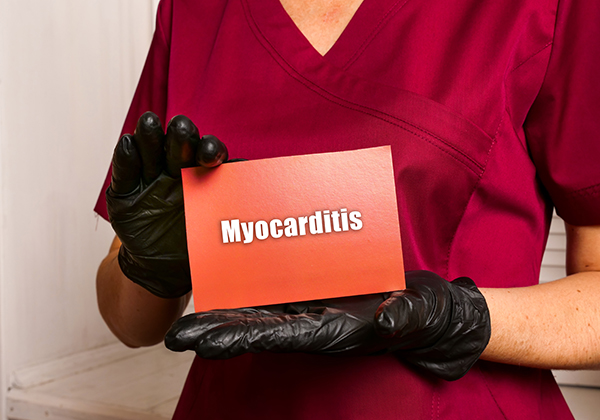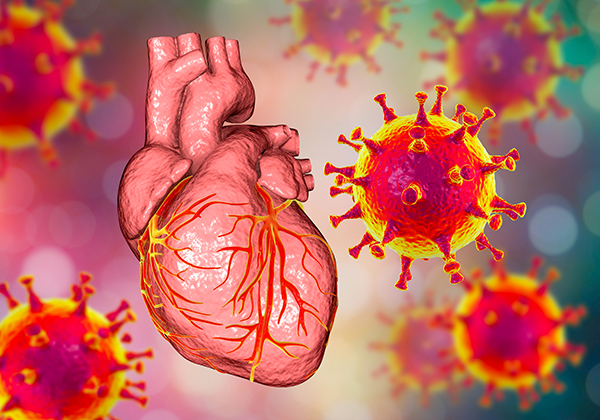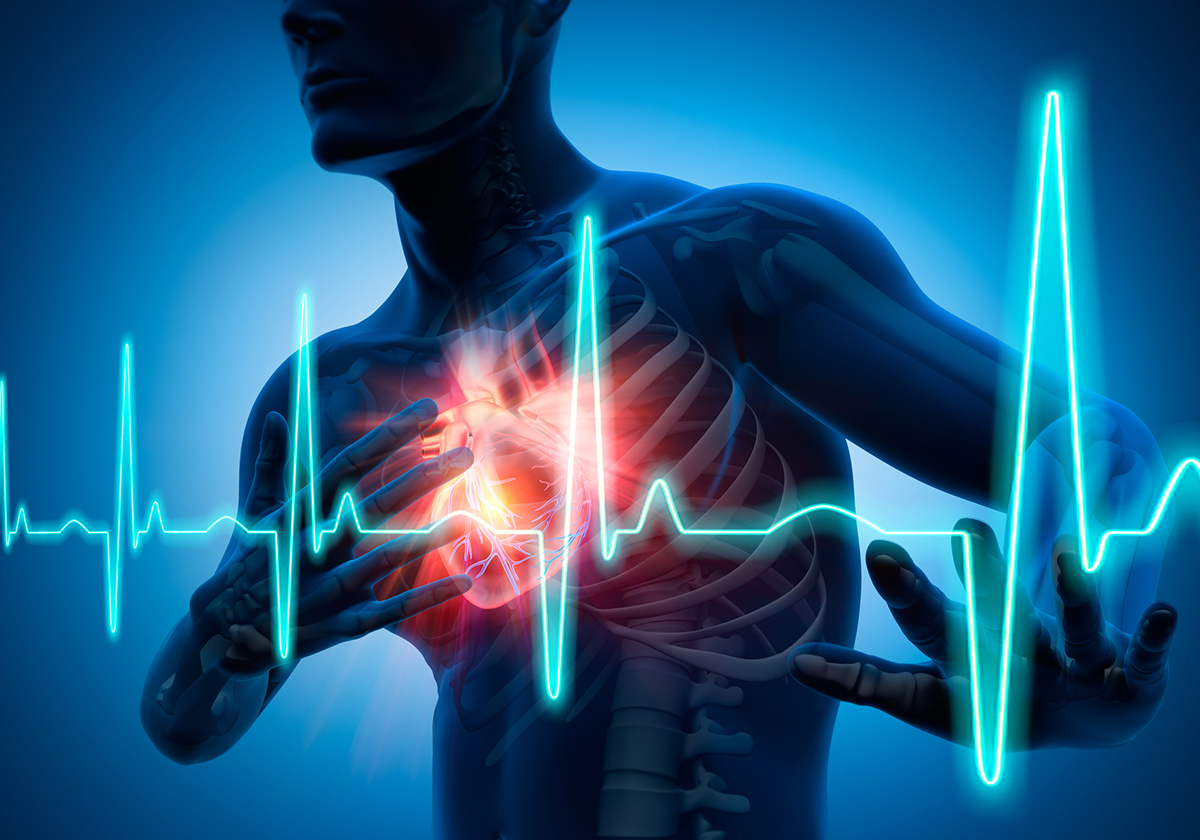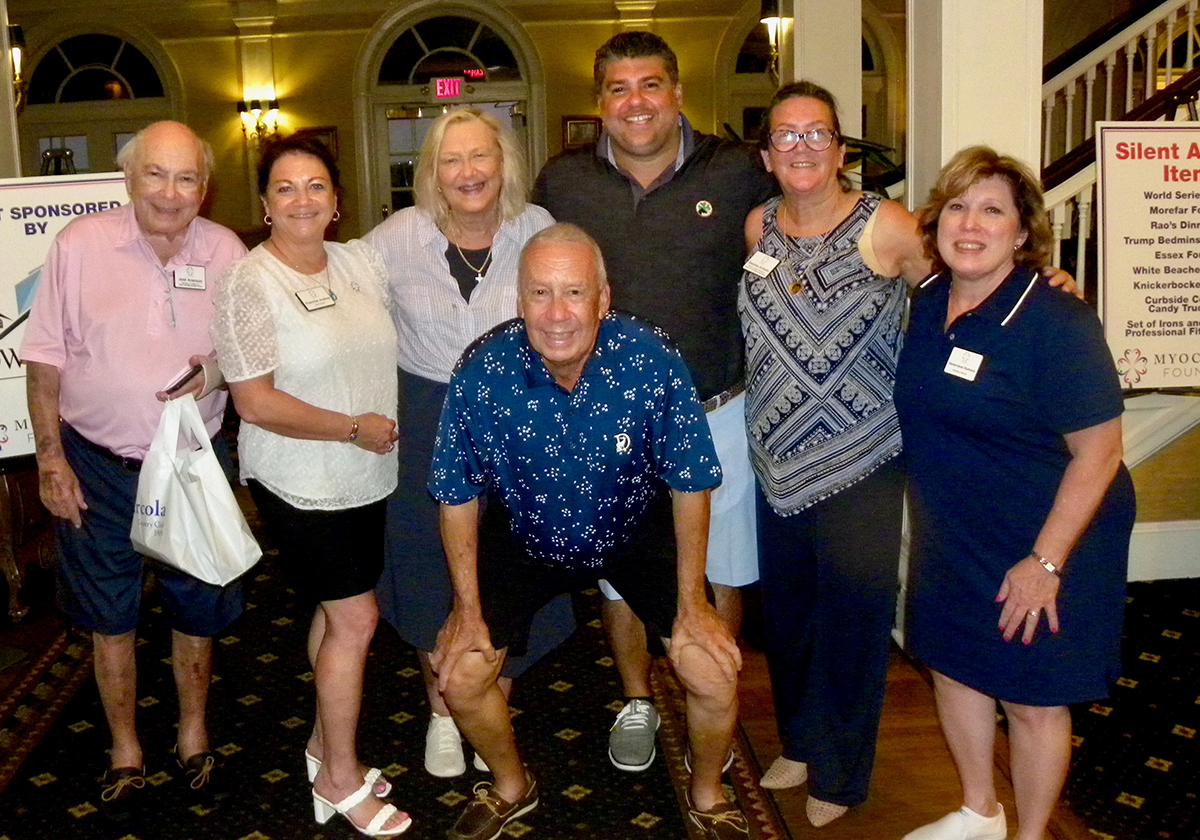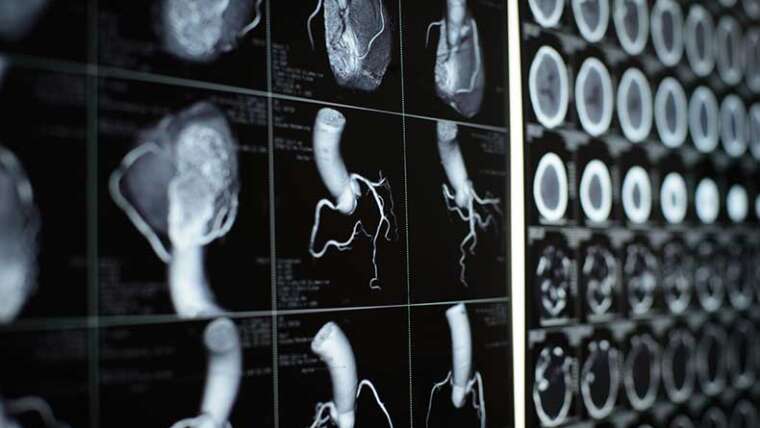 Myocarditis is a condition in which the heart muscle becomes inflamed as a result of the body’s immune response often to a virus infection. Myocarditis usually resolves within a few weeks or months but in a minority of cases inflammation can persist and lead to chronic scar in the heart. This scar from myocarditis can cause the heart to enlarge and stiffen, a condition called cardiomyopathy. Learn more about the connection between myocarditis and cardiomyopathy in this post from Myocarditis Foundation.
Myocarditis is a condition in which the heart muscle becomes inflamed as a result of the body’s immune response often to a virus infection. Myocarditis usually resolves within a few weeks or months but in a minority of cases inflammation can persist and lead to chronic scar in the heart. This scar from myocarditis can cause the heart to enlarge and stiffen, a condition called cardiomyopathy. Learn more about the connection between myocarditis and cardiomyopathy in this post from Myocarditis Foundation.
What is Cardiomyopathy?
Cardiomyopathy is a disorder of the heart muscle that hinders the heart’s ability to pump blood effectively. Cardiomyopathy often presents with one of 3 patterns:
- Hypertrophic cardiomyopathy: This condition occurs when the left ventricle thickens, often related to a genetic mutation.
- Restrictive cardiomyopathy: This less common condition results from the heart muscle becoming stiff but normal size and wall thickness. The heart in restrictive cardiomyopathy requires high pressures to fill with blood.
- Dilated cardiomyopathy:This is the most frequent type of cardiomyopathy after myocarditis, and is characterized by an enlarged left ventricle, with reduced ability to pump out blood.
Symptoms can vary from patient to patient and may present differently depending on the type of cardiomyopathy. Some common symptoms include:
- Fatigue
- Shortness of breath
- Chest pain
- Dizziness
- Edema
- Heart palpitations
- Fainting
Some patients may have cardiomyopathy and no symptoms. Cardiomyopathy can affect both children and adults of all backgrounds.
How Are Cardiomyopathy and Myocarditis Connected?
The inflammation and scar tissue in the heart caused by myocarditis can lead to cardiomyopathy in some patients as part of the healing process. Myocarditis typically causes dilated cardiomyopathy; it is less common for patients to develop restrictive or hypertrophic cardiomyopathy as a result of myocarditis. In long term follow up of acute myocarditis patients, approximately 20% diagnosed with myocarditis will eventually develop chronic cardiomyopathy.
Cardiomyopathy can also be caused by other chronic illnesses. Some patients develop cardiomyopathy as a result of conditions like genetic disorders like muscular dystrophy, diabetes, or systemic diseases like lupus. Patients whose family members have cardiomyopathy are at a higher risk of developing this condition.
Managing and Treating Cardiomyopathy
If a patient has been diagnosed with cardiomyopathy as a result of myocarditis, their doctor may recommend certain lifestyle changes that can help them manage their symptoms and live a healthy life. These include:
- Eating a healthy diet: Patients should choose a diet filled with fruits, vegetables, and healthy fats and proteins.
- Managing stress: Patients should seek to reduce or eliminate sources of stress. Breathing techniques, meditation, and other relaxation strategies can help.
- Avoiding alcohol and tobacco: Quitting smoking and reducing one’s alcohol intake can help promote heart health.
- Sometimes limiting strenuous exercise: Intense exercise shortly after myocarditis can make it more difficult for a patient’s body to heal from the acute inflammation caused by myocarditis.
To slow the progression of the cardiomyopathy, a doctor may sometimes recommend the following treatments:
- A pacemaker to treat arrhythmia
- A cardiac resynchronization therapy device to improve blood flow
- Blood thinners
- Medications to manage cholesterol
In rare cases, a doctor may recommend heart surgery, or even a heart transplant, to treat advanced cardiomyopathy.
Learn More from Myocarditis Foundation
If you’re recently received a diagnosis of myocarditis and cardiomyopathy, Myocarditis Foundation is here to help. As a national nonprofit organization dedicated to educating the public about myocarditis, Myocarditis Foundation offers resources for patients, caregivers, and healthcare professionals across the United States. To learn more about cardiomyopathy and other related conditions, reach out today.

